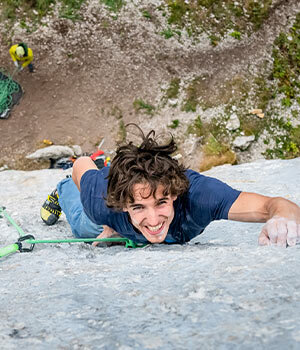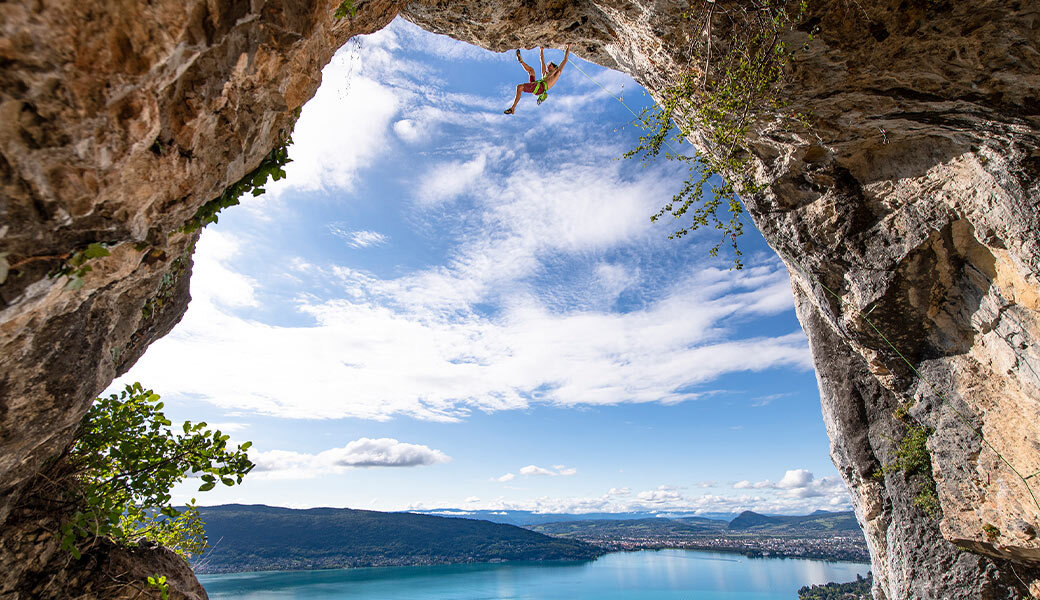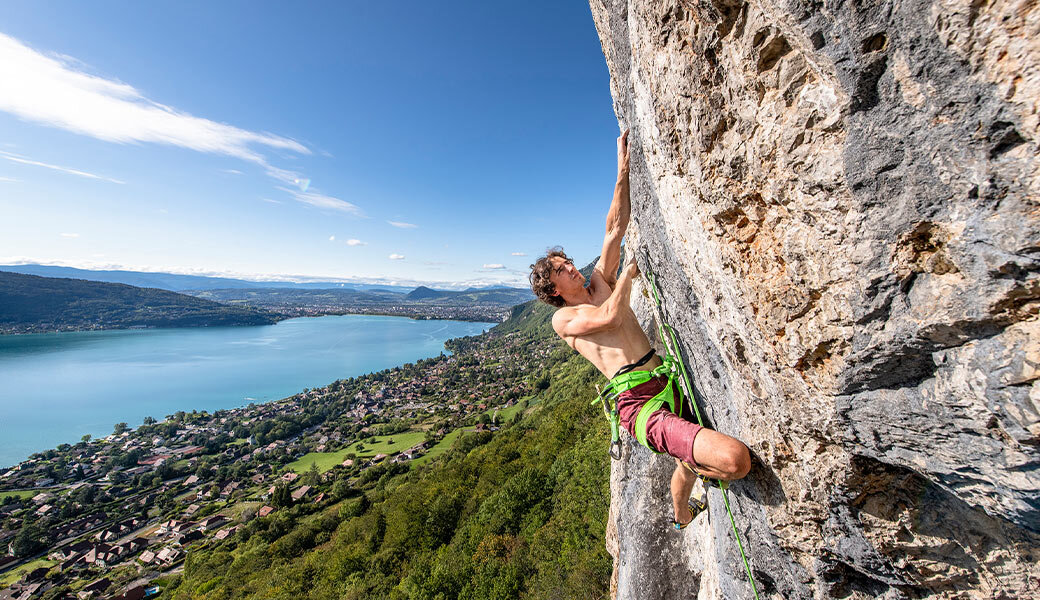What most people don`t know about me.
I have a purple happiness drawer. Seriously, I draw my strength and motivation from a serious skiing accident in which I could have died and which taught me a lot about myself and life.
When and how did you get into climbing and what kept you interested / fascinated in the sport?
I have been climbing for about ten years. I started in a club near Paris. I immediately loved this sport and it quickly became a passion, so much that I built myself a pan in my room. I was fascinated by the sensations and having to think of nothing else while climbing, just do the job
Who was your childhood hero and do you consider yourself a role model now? Does it influence you at all that other people look up to you?
My hero was Indiana Jones, I was dreaming of adventure. I do not consider myself as a model but I would like to be one and I want to share my values to inspire and dream. The fact that someone watches me does not influence me. On the contrary, I want to be myself and remain so.
What were the most important milestones in your life so far, both in climbing and in everyday life? Did you immediately recognize them as such or only later on?
The highlight of my life is my skiing accident when I was preparing for my mountain guide exam. I stopped all sports for 6 months and spent two months in Nepal recovering. I knew this was a turning point in my life. I stopped devoting myself to mountaineering and devoted myself exclusively to climbing.
What were your greatest failures / setbacks / injuries? How did you cope with them and how did you come back from them?
My biggest failure is the fact of having stopped stopped preparing for the mountain guide after my accident. That's where I got my strength. This moment is engraved in a corner of my head and I became stronger thanks to that.
What is your favorite climbing related story / experience?
My best climbing experience is probably my traverse of the Chartreuse with Christophe Dumarest. We spend 10 days in autonomy, doing 1 or 2 major routes a day with walking junctions. It was a moment out of the world and very intense. We shared a lot and discovered so much during this trip. When you come back from this kind of adventure, you feel more alive than ever.




